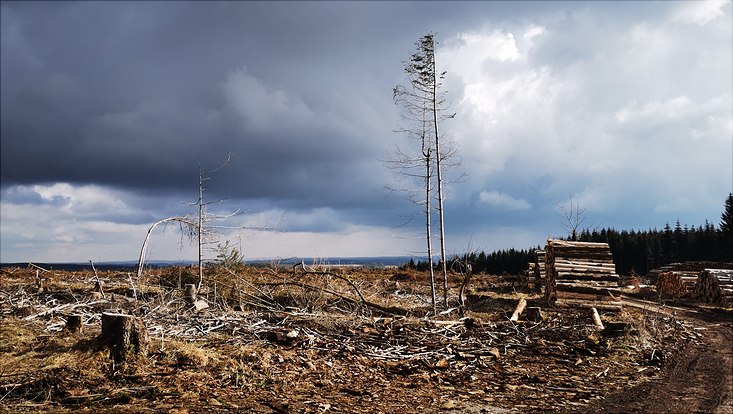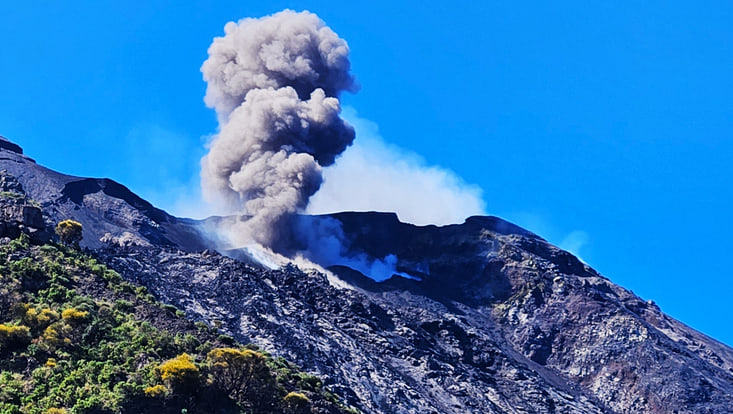Science meets local knowledgeClimate Change as Punishment?
28 June 2021, by Inga Janina Sievert

Photo: UHH/Sievert
Human beings are responsible for climate change. According to international polls, more and more people believe this. But are their beliefs based on scientific explanations? The latter show almost unanimously: humans in certain regions are producing too much greenhouse gas, due to their lifestyles and economies. At the same time, they are destroying greenhouse gas sinks, such as moorlands and forests. As a result, the global average temperature and weather are changing. Around the world, however, humans’ role as the cause of climate change is interpreted differently, as we have now found.
My colleague Coral O’Brian and I are anthropologists at Universität Hamburg’s Cluster of Excellence “Climate, Climatic Change, and Society” (CLICCS). Together, we investigated how human beings perceive and explain changing climatic conditions in their own surroundings. To do so, we sifted through edited volumes and databases for all the anthropological case studies involving explanatory models of weather and climate change published in the last 20 years. This allowed us to compare studies from rural areas, e.g. in the Andes, and from large cities, like Bengaluru in India or Lagos in Nigeria, and to include case studies from the Global North, e.g. from the USA and Italy.
By doing so, we found that people around the world often combine various explanatory models, and blend scientific explanations with local knowledge. Although most of them believe in anthropogenic climate change, they often identify other people as the perpetrators than scientific discourses do.
Take the Philippine island Palawan, for example. There, humans are considered to be responsible for flooding and landslides, due to their illegally clearing rainforests, fishing or mining to make a profit from natural resources. By moralizing and blaming both others and themselves, people give meaning to the scientific discourse, which they otherwise find difficult to understand. This is possible because both approaches view humans as the cause of the observed changes.
This type of “localization” can be found in similar forms in regions around the globe. In North Carolina, USA, many people don’t consider rising worldwide CO2 emissions to be the cause of climate change, but the fact that local wooded areas increasingly have to make way for the construction of new highways or Wal-Mart shopping centers.
Or, for example, when there is little rain in East Africa and droughts become more frequent, the Maasai interpret this as a punishment from their god Eng'ai for increasingly abandoning their traditional way of life. Accordingly, changes in the climate are perceived as local phenomena that punish or reward humans for their actions. Here, people’s beliefs are also central to their understanding and acceptance of the scientific discourse on climate change.
As our research shows: it’s worth reconsidering how we communicate science and climate change. When scientists and locals assess phenomena like the weather differently, we should ask ourselves whether we need to be more open to this difference if we want to get our message across.
Associated article
Schnegg, M., O’Brian, C.I. & Sievert, I.J. It’s Our Fault: A Global Comparison of Different Ways of Explaining Climate Change. Hum Ecol (2021). https://doi.org/10.1007/s10745-021-00229-w


